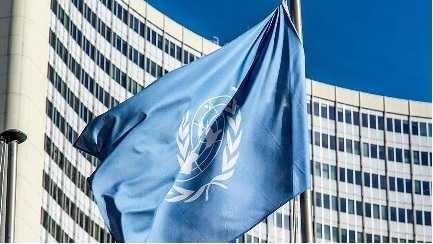
JUBA, Oct. 23 (Xinhua) -- The cross-border impact of the ongoing conflict in Sudan has significantly affected trade between Sudan and South Sudan amid an influx of returnees, the United Nations humanitarian agency said Monday.
The conflict, which began between the Sudanese Armed Forces (SAF) and the paramilitary Rapid Support Forces (RSF) in mid-April, has resulted in reduced imports from Sudan, leading to a rise in the cost of the food basket in South Sudan, said the UN Office for the Coordination of Humanitarian Affairs (OCHA).
The OCHA, which cited market monitoring conducted by humanitarian partners, said in its latest update on the Sudan crisis that the cost of agricultural products has increased significantly since the start of the Sudan crisis. "In areas bordering Sudan, particularly in Upper Nile and Unity states, the increase has ranged between 20 and 70 percent in Upper Nile State and between 70 and 165 percent in Unity State."
The UN agency reported that 317,993 people have crossed into South Sudan from Sudan since the onset of the conflict in April. Half of the arrivals are female, and about half are children below the age of 18, while South Sudanese returnees account for 88.5 percent of all arrivals.
According to the OCHA, new arrivals continue to report harassment, intimidation, torture and extortion of money during their journey to South Sudan. The proportion of refugees among new arrivals from Sudan is increasing, with Sudanese refugees accounting for 40 percent of new arrivals since the beginning of October, compared to 9 percent in September.
"Teams on the ground are investigating the causes," it said, noting that some 37,066 refugees and asylum-seekers have sought asylum in South Sudan, with 61 percent biometrically registered.
The UN agency also mentioned that poor roads, combined with rains and floods, continue to pose challenges in delivering humanitarian assistance and supporting the transportation of returnees and refugees, and its partners are seeking other options to ensure the delivery of supplies to affected areas.
Sudan has been witnessing deadly clashes between the SAF and the RSF in Khartoum, the capital of Sudan, and other areas since April 15, resulting in at least 3,000 deaths and more than 6,000 injuries, according to data released by the Sudanese Health Ministry. According to the International Organization for Migration, nearly 5.8 million people have been displaced inside and outside Sudan due to the prolonged conflict between the SAF and the RSF.




